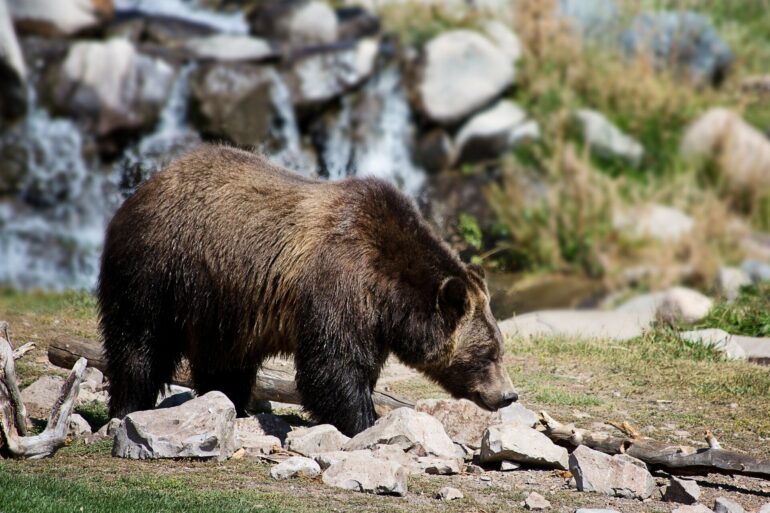Montanans know spring has officially arrived when grizzly bears emerge from their dens. But unlike the bears, the contentious debate over their future never hibernates. New research from my lab reveals how people’s social identities and the dynamics between social groups may play a larger role in these debates than even the animals themselves.
Social scientists like me work to understand the human dimensions behind wildlife conservation and management. There’s a cliché among wildlife biologists that wildlife management is really people management, and they’re right. My research seeks to understand the psychological and social factors that underlie pressing environmental challenges. It is from this perspective that my team sought to understand how Montanans think about grizzly bears.
To list or delist, that is the question
In 1975, the grizzly bear was listed as threatened under the Endangered Species Act following decades of extermination efforts and habitat loss that severely constrained their range. At that time, there were 700-800 grizzly bears in the lower 48 states, down from a historic 50,000. Today, there are about 2,000 grizzly bears in this area, and sometime in 2024 the U.S. Fish and Wildlife Service will decide whether to maintain their protected status or begin the delisting process.
Listed species are managed by the federal government until they have recovered and management responsibility can return to the states. While listed, federal law prevents hunting of the animal and destruction of grizzly bear habitat. If the animal is delisted, some states intend to implement a grizzly bear hunting season.
People on both sides of the delisting debate often use logic to try to convince others that their position is right. Proponents of delisting say that hunting grizzly bears can help reduce conflict between grizzly bears and humans. Opponents of delisting counter that state agencies cannot be trusted to responsibly manage grizzly bears.
But debates over wildlife might be more complex than these arguments imply.
Identity over facts
Humans have survived because of our evolved ability to cooperate. As a result, human brains are hardwired to favor people who are part of their social groups, even when those groups are randomly assigned and the group members are anonymous.
Humans perceive reality through the lens of their social identities. People are more likely to see a foul committed by a rival sports team than one committed by the team they’re rooting for. When randomly assigned to be part of a group, people will even overlook subconscious racial biases to favor their fellow group members.
Your social identities influence how you interpret your own reality.
Leaders can leverage social identities to inspire cooperation and collective action. For example, during the COVID-19 pandemic, people with strong national identities were more likely to…



